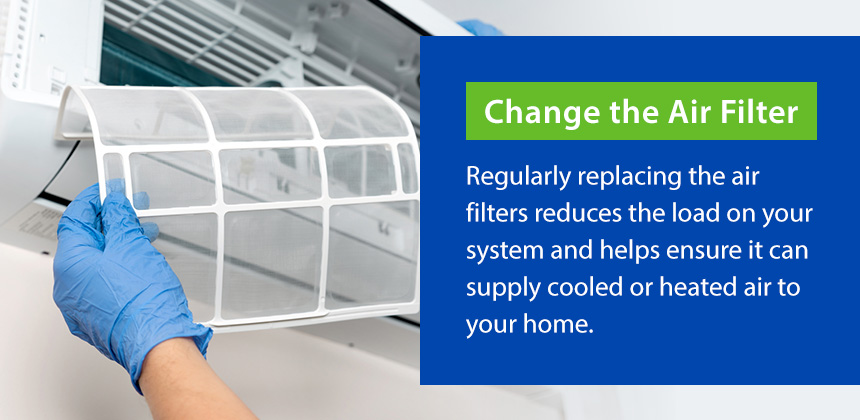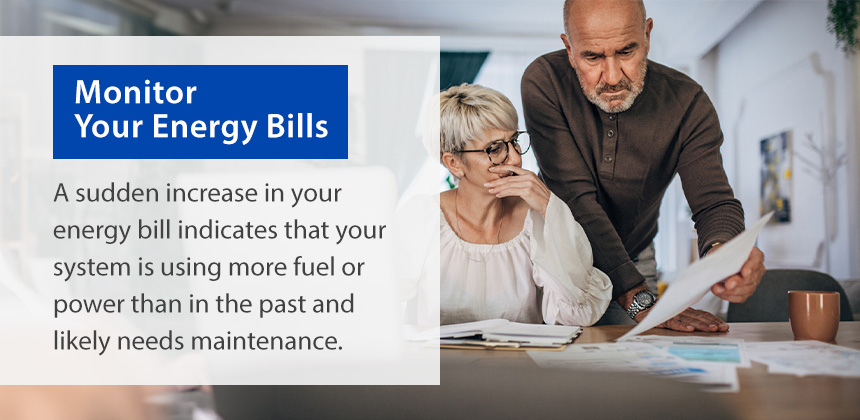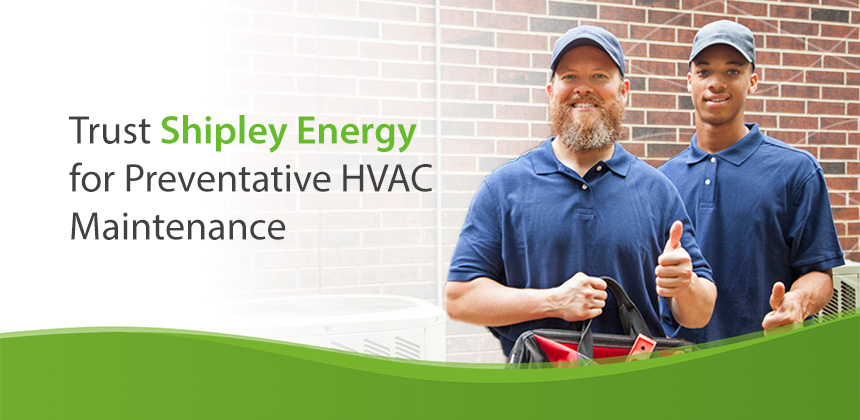
HVAC system maintenance is essential to ensure it provides the comfort you expect. A well-maintained HVAC system also lasts longer and runs more efficiently than a poorly maintained one. Learn about the importance of HVAC maintenance and tips you can follow to keep your system in good condition.
HVAC maintenance is essential, regardless of the type of system you have. HVAC systems are an investment in your home, and proper maintenance can help protect your investment and extend its life span. Regular maintenance provides the following benefits:
Maintaining your HVAC systems doesn’t have to be complicated — following an HVAC system maintenance checklist can help you complete the necessary tasks to keep your system in optimal condition. Here are some HVAC maintenance tips for beginners so you can ensure it operates efficiently and provides the temperatures you expect.

As air filters become clogged with dust and debris, your HVAC system must work harder to circulate air, increasing your energy bill. If the air filter becomes too clogged, pollutants can build up, get into other system components and damage your equipment. Regularly replacing the air filters reduces the load on your system and helps ensure it can supply cooled or heated air to your home.
Generally, experts recommend changing your air filter every three months. However, if you have pets or someone in your household has a respiratory condition, you may need to change your filter more frequently, such as every month. Consider cleanable, reusable filters if you replace them often.
Many systems include an outdoor condensing unit. Grass, leaves, dirt and other debris can collect around it and impede its functioning. If debris enters the equipment, it can damage the components, resulting in expensive problems and unexpected failures. Prevent these problems by including cleaning in your maintenance plan. You’ll want to spend some time clearing vegetation and dirt from around the unit, especially in the spring and summer when plant growth is at its greatest. You should also check your outdoor equipment after a storm or strong winds to ensure it’s free from debris.
Many people think closing the air vents in infrequently used rooms can help them save on energy. However, closing your air vents can actually increase the load on your HVAC system. Closed vents disrupt the airflow throughout the house, reducing your unit’s performance. Leaving the air vents open helps your system perform efficiently and prevents overloading.
Another problem with leaving your air vents closed is that your HVAC system still requires the same amount of electricity to operate, and the more vents you have closed, the harder your system will work, and you’ll increase the risk of leaks. Leaving your air vents open is one of the best ways to prevent unexpected problems from occurring to your system.
The better you understand your HVAC system, the more easily you can perform small maintenance tasks or communicate with an HVAC professional. The owner’s manual, manufacturer’s website and your HVAC technician can help you learn more about your equipment and understand what maintenance is needed. Listen to your HVAC system to determine what sounds are normal and which indicate a problem.
Air leaks make your HVAC system work harder, increasing wear and tear on your equipment and reducing its life span. The heating or cooling your system provides is also lost. In addition to keeping your doors and windows closed, you’ll want to install weather strips on them to prevent any air from leaking around the edges.
You should also check your ducts and insulation for leaks. A professional HVAC technician can help you inspect your ductwork and repair any leaks, helping you prevent exterior air from getting in and ensuring your HVAC system can effectively cool and heat your home.

Your energy bills can give you insight into how efficiently your HVAC system is performing. A sudden increase in your energy bill could indicate that your system is using more fuel or power than in the past and may need maintenance. A small increase could be due to a clogged filter or a dirty condenser. Larger increases likely require professional care, such as low refrigerant levels or replacing worn or broken parts.
You should also monitor your HVAC system’s performance, noting how quickly it cools or heats your home. If you feel like your HVAC system isn’t heating or cooling your home as quickly as it did previously, contact your HVAC service provider. They can inspect your system to determine the cause of poor performance and make any needed repairs. If it’s time to replace any of your equipment, they can also help you make the best choice for your situation.
Have an HVAC professional tune up your system annually to keep it in the best condition. Your HVAC technician inspects your system for potential problems and repairs or replaces components as needed. An annual tune-up can help you avoid costly repairs in the future, even if your system fails unexpectedly. A professional tune-up also covers more than standard maintenance. Tune-ups can include the following tasks:
Contact your HVAC technician to schedule your annual tune-up. Include a yearly tune-up on your regular maintenance checklist and reach out to your HVAC professionals in advance to ensure you get a tune-up at the appropriate intervals.

Maintaining your HVAC system requires careful planning to meet tune-up and inspection intervals and taking care of smaller tasks, like changing filters and cleaning around exterior equipment. Shipley Energy can help you stay on schedule with your maintenance and repairs. Our team can maintain your HVAC system so you get reliable performance, improved efficiency and energy savings throughout the year. Contact us today to learn more about our preventative HVAC maintenance services and tune-ups.